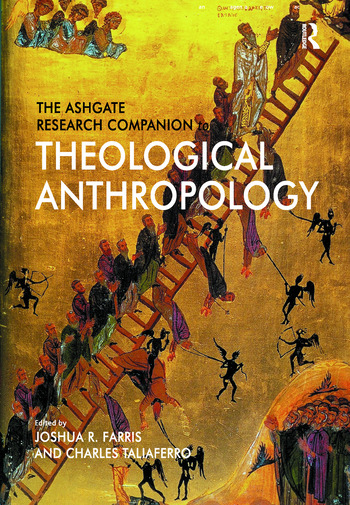Posted on September 1, 2016 by Administrator -
 Learn more about this Routledge Research Companion to Theological Anthropology and this chapter contribution!
Learn more about this Routledge Research Companion to Theological Anthropology and this chapter contribution!
This chapter attempts to present one version of anthropological hylomorphism which is inspired by the Aristotelian tradition.
Anthropological hylomorphism is the view that human beings are compounds of matter (Greek hyl?) and form (Greek morph?). According to this view, the soul of a human being is its substantial form. In the first part of the chapter this hylomorphism is presented and some difficulties pertaining to it are explored, for example: Does one human being have only one substantial form or many? Which kind of entity is a substantial form? Is it an entity at all? And can the soul, understood as substantial form, explain anything? In the second part of the chapter it is investigated how anthropological hylomorphism accounts for three central topics of Christian belief: the creation and beginning of an individual human being, the moral responsibility and moral status of human beings, and, finally, their bodily resurrection.
Questions for further study
- How can this version of hylomorphism account for substantial change?
- Is the matter that is formed by a substantial form prime matter or proximate matter
- What are formal explanations and who needs them?
Posted on September 15, 2016 by Administrator -

In recent scholarship there is an emerging interest in the integration of philosophy and theology.
Philosophers and theologians address the relationship between body and soul and its implications for theological anthropology. In so doing, philosopher-theologians interact with cognitive science, biological evolution, psychology, and sociology. Reflecting these exciting new developments,
Edited by EPS members, Joshua Farris and Charles Taliaferro, the Research Companion to Theological Anthropology is a resource for philosophers and theologians, students and scholars, interested in the constructive, critical exploration of a theology of human persons.
Throughout this collection of newly authored contributions, key themes are addressed: human agency and grace, the soul, sin and salvation, Christology, glory, feminism, the theology of human nature, and other major themes in theological anthropology in historic as well as contemporary contexts.
From the dozens of contributions in this single volume resource, we highlight some of the contributions, along with further resources for study.



